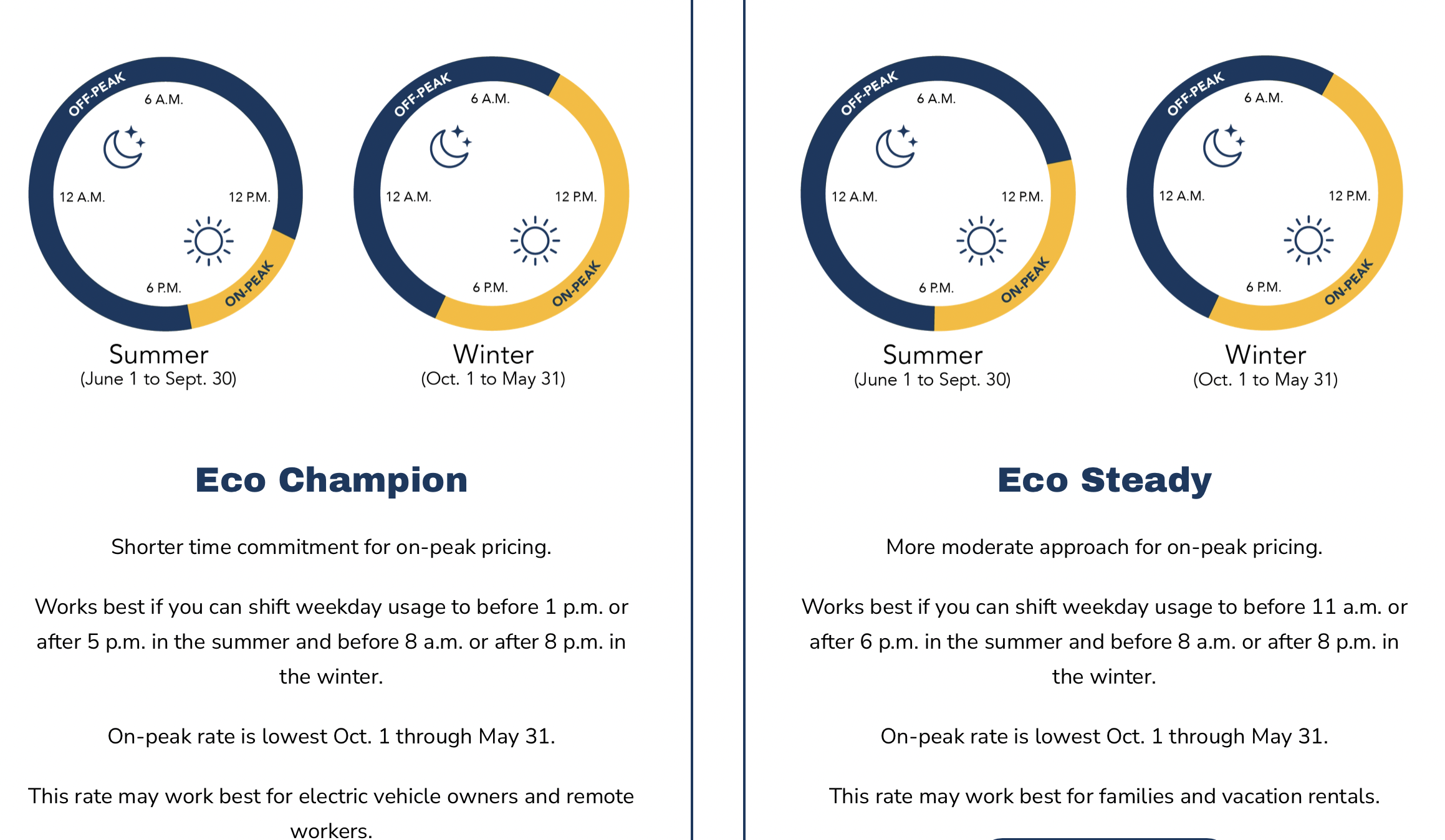Houston residents may soon pay for service that’s been free for decades – KHOU

Report on Houston’s Solid Waste Management Crisis and Proposed Fee Structure
Introduction: Aligning Urban Services with Sustainable Development Goals
The City of Houston is confronting a significant crisis within its Solid Waste Management Department, characterized by systemic service failures, particularly in recycling collection. These deficiencies directly challenge the city’s progress towards key United Nations Sustainable Development Goals (SDGs), notably SDG 11 (Sustainable Cities and Communities) and SDG 12 (Responsible Consumption and Production). In response, city leaders are formally considering the implementation of a dedicated solid waste fee to create a sustainable funding model for essential municipal services.
Analysis of Systemic Failures in Waste Management
Service Disruptions and Environmental Impact
Data from the city’s 311 service line indicates a severe degradation of waste collection services. This directly undermines SDG Target 11.6, which aims to reduce the adverse per capita environmental impact of cities through effective waste management.
- In June, complaints of missed recycling collection exceeded 8,000 instances.
- Complaints regarding garbage and heavy trash collection have also seen a notable increase.
- These failures impede the city’s ability to divert waste from landfills, a core component of SDG 12.5 (substantially reduce waste generation through recycling).
Operational and Infrastructural Deficiencies
An internal review by Interim Director Larius Hassen identified several critical factors contributing to the service crisis. These issues highlight a need for investment in resilient infrastructure and technology, as outlined in SDG 9 (Industry, Innovation, and Infrastructure).
- Human Resources: A loss of 30 staff members following a retirement buyout has created a significant labor shortage, impacting the city’s capacity to provide decent work and maintain services (SDG 8).
- Technology: The department relies on outdated routing software, leading to inefficiency.
- Infrastructure: The vehicle fleet is aging, and the city operates only one drop-off location for recycling, creating logistical bottlenecks.
Proposed Solution: A Dedicated Fee for Sustainable Waste Management
Rationale for a New Funding Model
Houston is an outlier among major Texas municipalities in its lack of a dedicated solid waste fee, instead funding these services from its General Fund. Neighboring cities like Dallas, Austin, and San Antonio have established fees ranging from approximately $14 to $38 per month. The introduction of a similar fee in Houston is proposed as a mechanism to provide a stable, dedicated revenue stream to modernize the waste management system and achieve sustainability targets.
Public Support and Socio-Economic Considerations
Recent surveys indicate public willingness to support a new fee structure, provided it leads to improved services. Addressing the financial impact on all residents is critical to ensuring the solution is equitable, in line with SDG 1 (No Poverty) and SDG 10 (Reduced Inequalities).
- A 2023 Kinder Institute for Urban Research survey found that two-thirds of respondents favored a fee. Smaller 2025 surveys confirmed this support at approximately 66%.
- Concerns have been raised by residents on fixed incomes regarding affordability.
- In response, survey participants expressed openness to a sliding-scale fee adjusted for household income, ensuring the policy does not disproportionately burden low-income households.
Projected Outcomes and Strategic Path Forward
Anticipated Improvements and SDG Alignment
A dedicated fee, potentially augmenting the city’s current expenditure of $18 per household, could generate significant capital for reinvestment. This funding would directly support the achievement of multiple SDGs.
- SDG 9: Purchase of new trucks and modern routing technology.
- SDG 8: Hiring of additional crew members to ensure reliable service and provide decent jobs.
- SDG 11 & 12: Establishment of a robust and reliable recycling and waste collection system, creating a more sustainable and resilient city.
Implementation Roadmap
The path to implementing a fee involves a structured, multi-stakeholder process, reflecting the collaborative approach of SDG 17 (Partnerships for the Goals). Mayor John Whitmire has indicated that discussions will be integrated into the next budget planning cycle, following a thorough review of departmental efficiencies.
- A study commissioned by the City Council will be reviewed by the Solid Waste Management department.
- The study’s findings will be verified and finalized.
- The department will brief the Mayor on the results.
- Formal consideration of a fee structure will be incorporated into future city budget deliberations.
Analysis of SDGs, Targets, and Indicators
1. Which SDGs are addressed or connected to the issues highlighted in the article?
-
SDG 11: Sustainable Cities and Communities
- The article’s central theme is the failure of Houston’s municipal solid waste and recycling collection service, which is a core component of urban environmental management. It discusses issues like “missed recycling pickups,” “garbage and heavy trash pickups,” and the overall challenge of managing waste in a major city.
-
SDG 12: Responsible Consumption and Production
- This goal is directly relevant through its focus on reducing waste. The article highlights the breakdown in recycling services, which is a key strategy for sustainable production and consumption patterns. A resident’s comment, “If not, it’s going into the landfill, which isn’t the best place for it,” directly connects the failure of collection services to the broader goal of waste reduction and proper disposal.
-
SDG 9: Industry, Innovation and Infrastructure
- The article points to failing infrastructure as a root cause of the service issues. It explicitly mentions an “aging fleet,” “old routing software,” and “only one location for trucks to drop off recycling waste” as significant problems hindering the Solid Waste Management Department’s operations.
-
SDG 16: Peace, Justice and Strong Institutions
- The article details issues of governance and institutional effectiveness. It covers the “leadership change” in the Solid Waste Management department, the city council’s discussions on solutions, the commissioning of a study to “look at ways to improve Solid Waste Management,” and the use of “311 data” to track complaints, all of which relate to the accountability and functionality of public institutions.
-
SDG 10: Reduced Inequalities
- The potential economic impact of a new waste fee on different income groups is discussed. The article notes the concerns of retirees on “fixed incomes” and mentions a proposal for a “sliding scale for a solid waste fee to adjust for households’ income limits,” which directly addresses the goal of creating equitable policies.
2. What specific targets under those SDGs can be identified based on the article’s content?
-
Target 11.6: By 2030, reduce the adverse per capita environmental impact of cities, including by paying special attention to air quality and municipal and other waste management.
- The entire article is about the challenges Houston faces with its municipal waste management system, from missed pickups to funding shortages, directly aligning with this target.
-
Target 12.5: By 2030, substantially reduce waste generation through prevention, reduction, recycling and reuse.
- The spike in “missed recycling collection” complaints directly undermines this target, as uncollected recyclables are likely to end up in landfills, increasing waste generation.
-
Target 9.1: Develop quality, reliable, sustainable and resilient infrastructure, including regional and transborder infrastructure, to support economic development and human well-being, with a focus on affordable and equitable access for all.
- The article identifies an “aging fleet” and “old routing software” as key factors impacting service reliability, pointing to a clear need to invest in and upgrade infrastructure to meet this target.
-
Target 16.6: Develop effective, accountable and transparent institutions at all levels.
- The city’s response to public complaints, the commissioning of a study, and the public debate in the City Council about a waste fee are all efforts related to making the Solid Waste Management department more effective and accountable to its residents.
-
Target 10.4: Adopt policies, especially fiscal, wage and social protection policies, and progressively achieve greater equality.
- The suggestion that survey takers “would be open to a sliding scale for a solid waste fee to adjust for households’ income limits” is a direct reference to creating a fiscal policy that aims for greater equity and protects those on fixed or low incomes.
3. Are there any indicators mentioned or implied in the article that can be used to measure progress towards the identified targets?
- Number of public service complaints: The article explicitly states that “311 data shows complaints of missed recycling collection spiked in June to more than 8,000 instances.” This quantifiable metric serves as a direct indicator of the performance and reliability of the city’s waste management service (Target 11.6).
- Public support for funding mechanisms: The article cites survey data as an indicator of public will. “A 2023 survey from the Kinder Institute for Urban Research… found that two-thirds of Houstonians who responded would be in favor of some kind of fee.” This measures public buy-in for institutional changes (Target 16.6).
- Adoption of equitable fiscal policies: The proposal for a “sliding scale for a solid waste fee” is mentioned as a potential policy. The adoption and implementation of such a fee structure would be a clear indicator of progress toward Target 10.4.
- Investment in infrastructure: While not quantified, the article implies that progress could be measured by investments in “buying additional trucks” and getting rid of “old routing software.” The amount of funding allocated to these upgrades would be a key indicator for Target 9.1.
- Municipal recycling rate (implied): The concern that uncollected recycling is “going into the landfill” implies that the city’s overall recycling rate is a critical, though unstated, indicator for measuring the effectiveness of waste reduction efforts (Target 12.5).
4. Table of SDGs, Targets, and Indicators
| SDGs | Targets | Indicators |
|---|---|---|
| SDG 11: Sustainable Cities and Communities | 11.6: Reduce the adverse per capita environmental impact of cities, including… municipal and other waste management. | Number of missed collection complaints logged in the 311 system (e.g., “more than 8,000 instances” in June). |
| SDG 12: Responsible Consumption and Production | 12.5: Substantially reduce waste generation through… recycling. | Implied Indicator: The rate of recycling versus waste sent to landfill. The article notes the consequence of failed pickup is material “going into the landfill.” |
| SDG 9: Industry, Innovation and Infrastructure | 9.1: Develop quality, reliable, sustainable and resilient infrastructure. | Implied Indicators: Condition of the waste management infrastructure, such as the age of the vehicle fleet (“aging fleet”) and the modernity of logistics systems (“old routing software”). |
| SDG 16: Peace, Justice and Strong Institutions | 16.6: Develop effective, accountable and transparent institutions at all levels. | Results of public opinion surveys on service fees (“two-thirds of Houstonians… would be in favor”). Commissioning of studies to improve departmental performance. |
| SDG 10: Reduced Inequalities | 10.4: Adopt policies, especially fiscal… and progressively achieve greater equality. | The proposal and potential adoption of a “sliding scale for a solid waste fee to adjust for households’ income limits.” |
Source: khou.com

What is Your Reaction?
 Like
0
Like
0
 Dislike
0
Dislike
0
 Love
0
Love
0
 Funny
0
Funny
0
 Angry
0
Angry
0
 Sad
0
Sad
0
 Wow
0
Wow
0












































































